
The Enchanting Beskydy Mountains of Czechia
Nestled in the eastern part of Czechia, the Beskydy Mountains offer an idyllic escape into nature's embrace. This mountain range, part of the Carpathian Mountain chain, is a haven for outdoor enthusiasts and nature lovers alike. From the rolling hills and dense forests to the clear streams and picturesque valleys, the Beskydy Mountains are a landscape of serene beauty and tranquil charm. One of the highlights of the Beskydy Mountains is their extensive network of hiking and biking trails. Whether you're an experienced hiker or a casual stroller, there are paths suited to every level of fitness and interest. The trails lead you through lush forests, past traditional wooden cottages, and up to breathtaking viewpoints where you can take in the stunning panoramas of the surrounding countryside. In addition to its natural beauty, the Beskydy Mountains are rich in cultural heritage. The region is dotted with quaint villages where you can experience traditional Czech culture. Be sure to visit the Wallachian Open Air Museum in Rožnov pod Radhoštěm, which showcases the architecture and lifestyle of the local people. For a spiritual journey, the pilgrimage site of Radhošť Mountain, with its iconic statue of the pagan god Radegast, offers both historical and religious significance. Winter transforms the Beskydy Mountains into a snowy wonderland. Skiers and snowboarders can enjoy well-maintained slopes and cozy mountain chalets. The region's ski resorts, like Pustevny and Bílá, cater to both beginners and seasoned skiers, making it a perfect winter destination. Whether you're exploring its natural trails, immersing yourself in local culture, or enjoying winter sports, the Beskydy Mountains promise an unforgettable experience. This hidden gem of Czechia invites you to discover its timeless beauty and serene landscapes.
Local tips in Beskydy Mountains
- Visit in autumn for stunning foliage and fewer crowds.
- Try traditional Wallachian cuisine in local restaurants.
- Bring cash as some remote areas may not accept cards.
- Check weather conditions before hiking in winter.
- Use local guides for a richer cultural experience.
The Enchanting Beskydy Mountains of Czechia
Nestled in the eastern part of Czechia, the Beskydy Mountains offer an idyllic escape into nature's embrace. This mountain range, part of the Carpathian Mountain chain, is a haven for outdoor enthusiasts and nature lovers alike. From the rolling hills and dense forests to the clear streams and picturesque valleys, the Beskydy Mountains are a landscape of serene beauty and tranquil charm. One of the highlights of the Beskydy Mountains is their extensive network of hiking and biking trails. Whether you're an experienced hiker or a casual stroller, there are paths suited to every level of fitness and interest. The trails lead you through lush forests, past traditional wooden cottages, and up to breathtaking viewpoints where you can take in the stunning panoramas of the surrounding countryside. In addition to its natural beauty, the Beskydy Mountains are rich in cultural heritage. The region is dotted with quaint villages where you can experience traditional Czech culture. Be sure to visit the Wallachian Open Air Museum in Rožnov pod Radhoštěm, which showcases the architecture and lifestyle of the local people. For a spiritual journey, the pilgrimage site of Radhošť Mountain, with its iconic statue of the pagan god Radegast, offers both historical and religious significance. Winter transforms the Beskydy Mountains into a snowy wonderland. Skiers and snowboarders can enjoy well-maintained slopes and cozy mountain chalets. The region's ski resorts, like Pustevny and Bílá, cater to both beginners and seasoned skiers, making it a perfect winter destination. Whether you're exploring its natural trails, immersing yourself in local culture, or enjoying winter sports, the Beskydy Mountains promise an unforgettable experience. This hidden gem of Czechia invites you to discover its timeless beauty and serene landscapes.
When is the best time to go to Beskydy Mountains?
Iconic landmarks you can’t miss
Prague Castle
Explore the grandeur of Prague Castle, a UNESCO World Heritage site, featuring stunning architecture, rich history, and breathtaking views of the city.
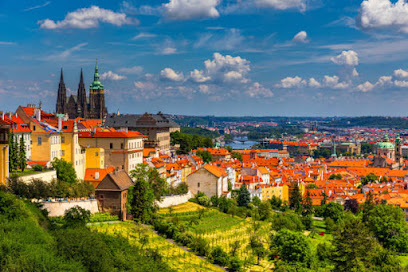
Bohemian Switzerland National Park
Experience the stunning rock formations and rich biodiversity of Bohemian Switzerland National Park, a must-visit for outdoor enthusiasts in the Czech Republic.
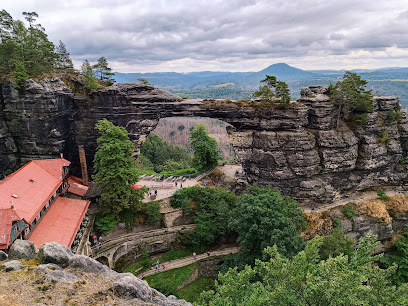
Adršpach-Teplice Rocks
Explore the breathtaking Adřspach-Teplice Rocks, where nature's beauty meets adventure in the heart of the Czech Republic's national park.
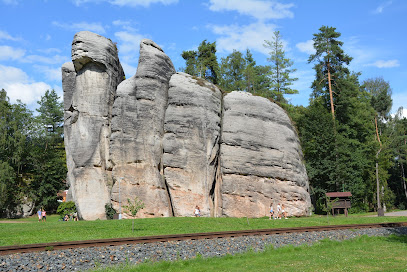
Pravčická Archway
Discover the breathtaking Pravčická Archway, a stunning natural rock formation in Czech Republic's Bohemian Switzerland National Park, perfect for nature lovers and adventurers.
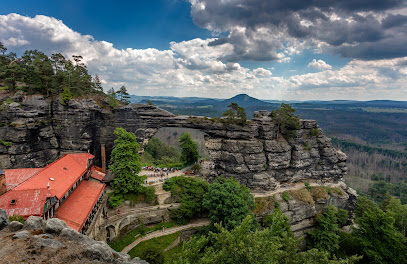
Šumava National Park
Explore Šumava National Park: A breathtaking wonderland of forests, lakes, and wildlife in the heart of the Czech Republic.
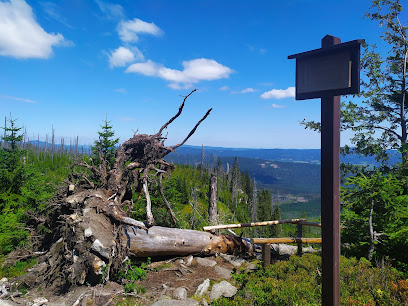
Wallachian Open Air Museum
Explore the Wallachian Open Air Museum, a captivating heritage site showcasing traditional wooden architecture and rich cultural experiences in the Czech Republic.
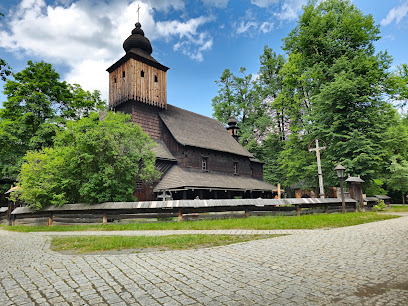
Zdarski Mountains
Explore the stunning Zdarski Mountains, a nature preserve in the Czech Republic, perfect for hiking, birdwatching, and experiencing local culture.
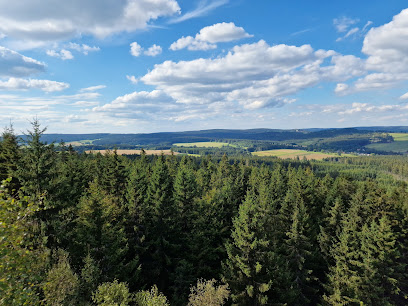
Statue of Radegast
Explore the Statue of Radegast, a monumental tribute to Slavic mythology, set in the picturesque Pustevny region of the Beskydy Mountains.
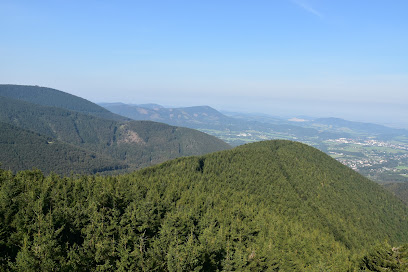
Štramberská Trúba
Experience the breathtaking views and rich history of Štramberská Trůba, a must-visit landmark in the heart of the Czech Republic.
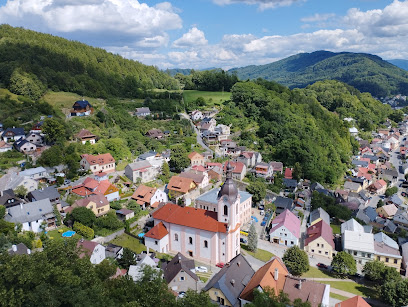
Tiské stěny
Explore Tiské stěny, a natural gem in the Czech Republic, featuring breathtaking rock formations and scenic trails perfect for outdoor adventures.
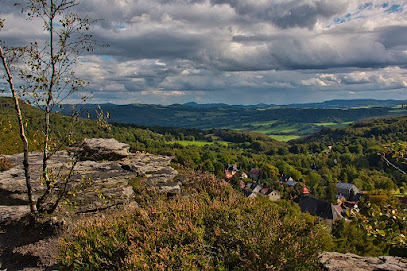
Viewpoint Máj
Discover breathtaking vistas and serene landscapes at Viewpoint Máj, the perfect scenic spot for nature lovers and hikers in Krňany-Netvořice.
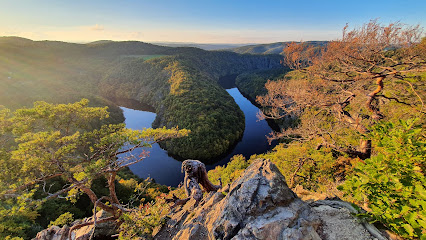
Dolský mlýn
Discover the serene beauty and historical significance of Dolský Mlýn, a hidden gem in the Czech Republic's picturesque countryside.
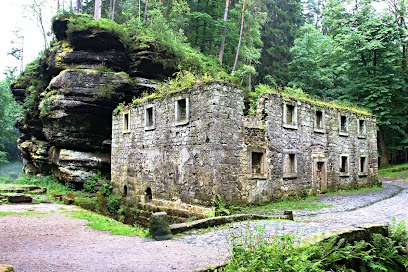
Javorový vrch
Experience the tranquility and natural beauty of Javorový vrch, a charming alpine cottage in the heart of the Beskydy Mountains, perfect for nature lovers.
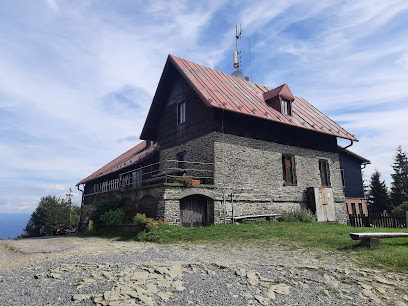
Belvedere Viewpoint
Experience breathtaking views and serene nature at the Belvedere Viewpoint, a top tourist attraction in Děčín-Hřensko, Czech Republic.
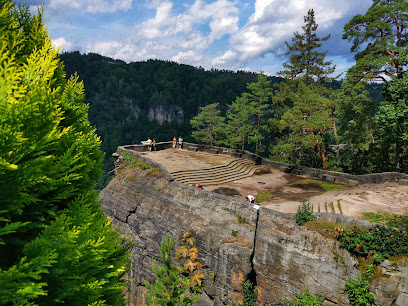
National Memorial to the Heroes of the Heydrich Terror
Explore the National Memorial to the Heroes of the Heydrich Terror, a poignant war museum in New Town, Czech Republic, dedicated to the brave resistance fighters of WWII.
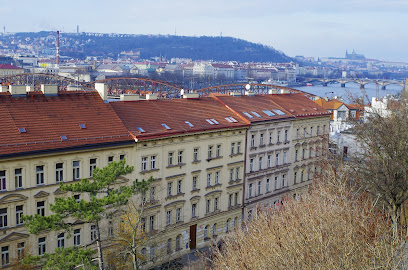
Unmissable attractions to see
Prague Astronomical Clock
Discover the magic of the Prague Astronomical Clock, a stunning medieval timepiece that showcases the beauty of astronomy and history.
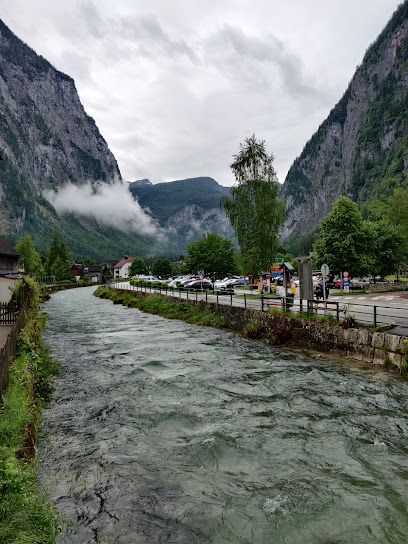
Karlštejn Castle
Explore the awe-inspiring Karlštejn Castle, a magnificent historical site in the Czech Republic, surrounded by breathtaking landscapes and rich heritage.
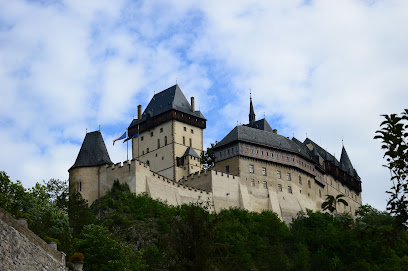
Adršpach-Teplice Rocks
Discover the stunning sandstone formations and rich biodiversity at the breathtaking Adršpach-Teplice Rocks, a national reserve in the Czech Republic.
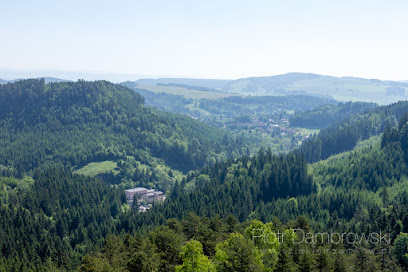
Wallachian Open Air Museum
Experience the rich cultural heritage and breathtaking landscapes at the Wallachian Open Air Museum in Rožnov pod Radhoštěm.
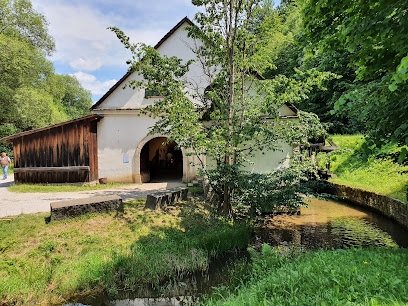
Trosky State Castle
Discover the majestic Trosky State Castle, a historical gem offering breathtaking views and rich history in the heart of the Czech Republic.
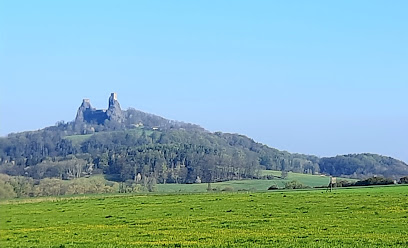
Royal Forest Dam
Explore the Royal Forest Dam: A serene escape in the heart of nature, perfect for hiking, picnicking, and experiencing Czech historical charm.
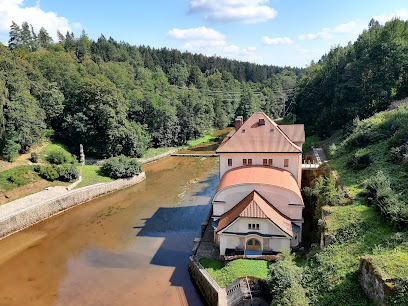
Zdarski Mountains
Explore the stunning Zdarski Mountains, a nature preserve offering breathtaking vistas and endless outdoor adventures in the heart of the Czech Republic.
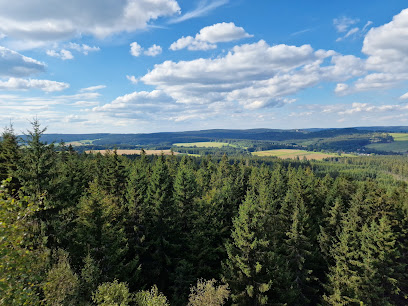
Statue of Radegast
Discover the Statue of Radegast in Pustevny, where Slavic mythology meets stunning hiking trails and breathtaking mountain views.
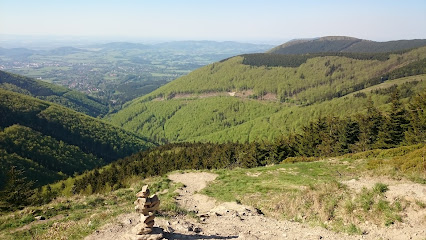
Štramberská Trúba
Discover the historic Štramberská Trúba, a medieval tower offering breathtaking views and a glimpse into Czech heritage in the charming town of Štramberk.
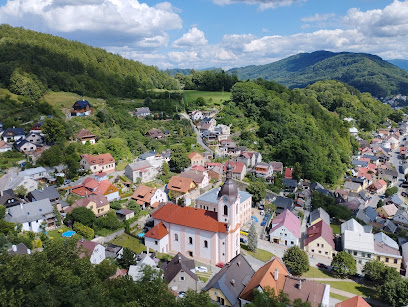
Zamek Cieszyn
Discover the enchanting Zamek Cieszyn, a historical castle offering breathtaking views and rich cultural experiences in the heart of Poland.
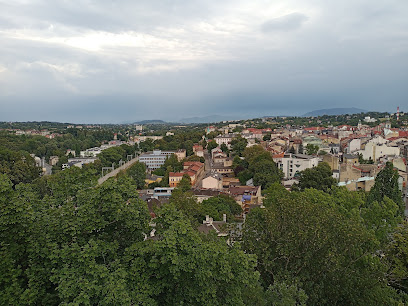
Triborder SK/CZ/PL
Explore the Triborder SK/CZ/PL where three nations converge, offering breathtaking views, rich heritage, and unforgettable outdoor adventures.
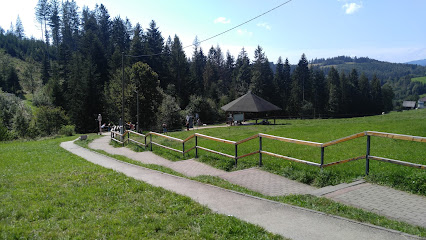
Ski Resort Bílá
Discover the magic of winter sports and stunning views at Bílá Ski Resort in the Beskydy Mountains, perfect for adventure seekers and nature enthusiasts.
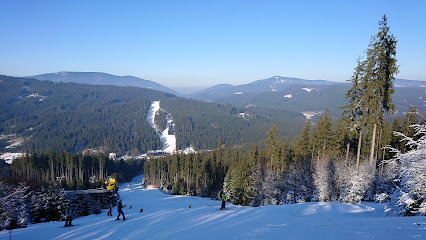
Speculum Alchemiae
Discover the enchanting world of alchemy at Speculum Alchemiae, a unique museum in Prague's Old Town offering a fascinating glimpse into the past.
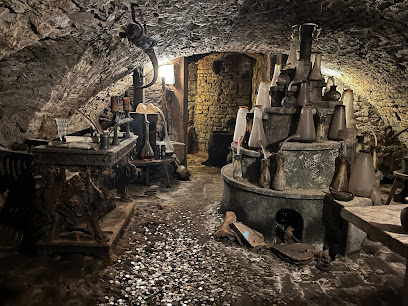
Bolt Tower - Czechy
Discover the stunning views and rich history at Bolt Tower in Ostrava, a perfect blend of heritage and modernity amidst scenic beauty.
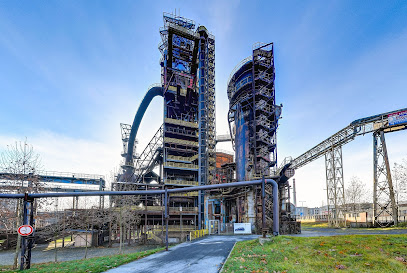
Souš Reservoir
Experience the tranquil beauty of Souš Reservoir, a hidden gem in the Jizerské hory mountains, perfect for nature lovers and outdoor adventurers.
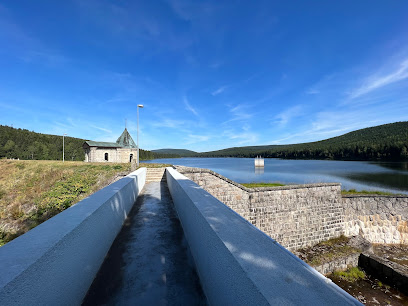
Essential places to dine
Kantýna
Experience authentic Czech cuisine at Kantýna in New Town—renowned for its exceptional meat dishes and inviting atmosphere.
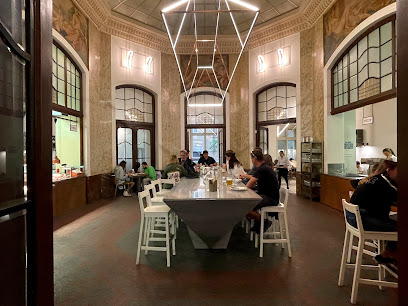
Masaryk lodge
Discover Masaryk Lodge: A delightful restaurant offering traditional Czech cuisine amid stunning landscapes perfect for hiking enthusiasts.
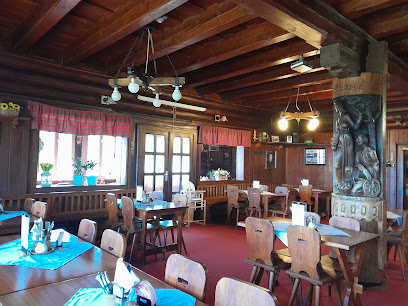
Restaurant Mlýnec
Discover culinary artistry at Restaurant Mlýnec in Prague – where modern European cuisine meets breathtaking river views.
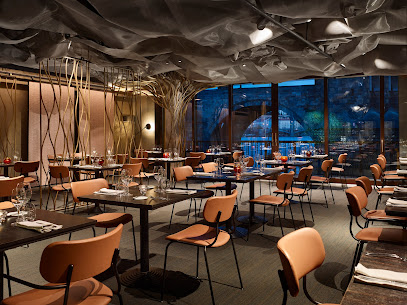
Prašivá chalet - accommodation in Beskydy
Experience authentic Czech cuisine at Prašivá Chalet surrounded by breathtaking landscapes in the heart of Beskydy.
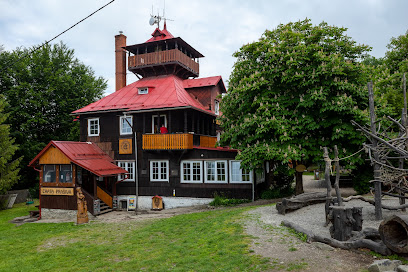
Penzion a restaurace Staré časy
Experience authentic Czech cuisine and cozy accommodations at Penzion a restaurace Staré časy in Horní Bečva.
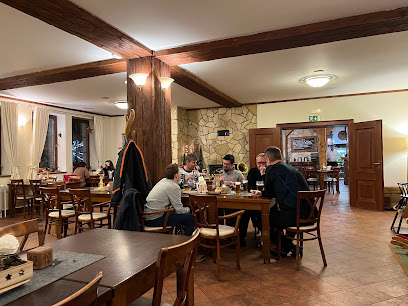
OREA Resort Devět Skal
Experience culinary excellence and family-friendly leisure at OREA Resort Devět Skal in Sněžné-Svratka.
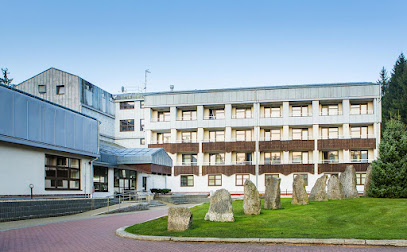
Horský hotel Portáš
Discover Horský hotel Portáš: A charming retreat offering delicious Czech cuisine and access to stunning hiking trails and ski resorts.
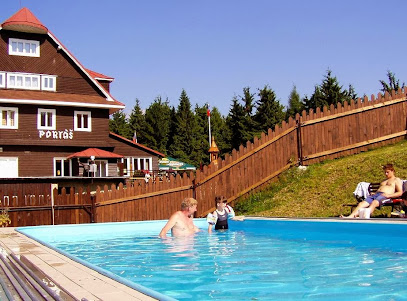
Restaurace Na Rozcestí
Discover authentic Czech flavors at Restaurace Na Rozcestí in Čeladná - where culinary tradition meets natural beauty.
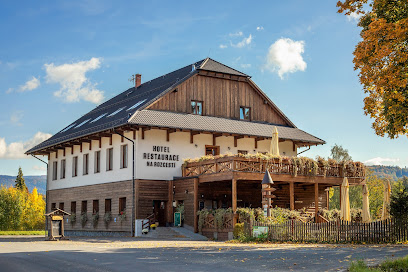
Radegast Hotel
Discover the charm of Radegast Hotel in Dolní Bečva - where traditional Czech cuisine meets modern comfort.
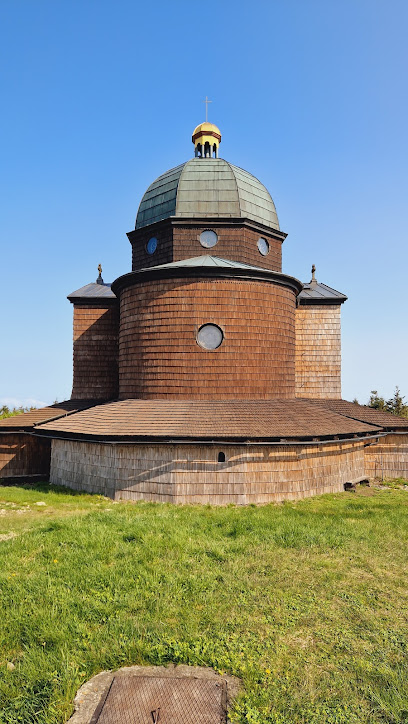
Kohutka
Discover authentic Czech cuisine at Kohutka while enjoying breathtaking views of the Beskydy Mountains - an unforgettable dining experience awaits.
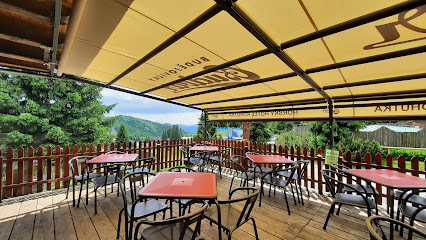
Zámek Křtiny
Experience the charm of Zámek Křtiny – a historic castle blending exquisite architecture with cultural experiences in scenic Czech landscapes.
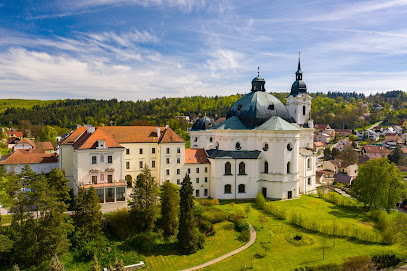
La Degustation
Experience the pinnacle of modern Czech cuisine at La Degustation, where every meal is an exquisite journey for your taste buds.
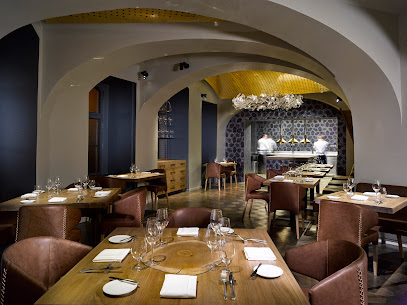
Giant's Ditch Inn
Discover Giant's Ditch Inn: A charming restaurant and boarding house nestled in Pec pod Sněžkou, perfect for hikers seeking comfort and delicious Czech cuisine.
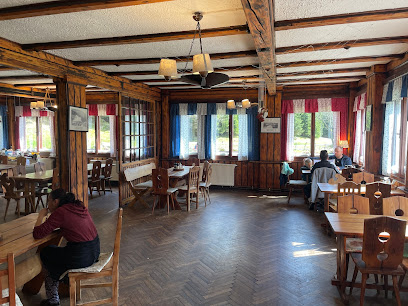
Restaurant Zvonice
Discover authentic Czech cuisine in an elegant setting at Restaurant Zvonice - a must-visit for food lovers in Prague.
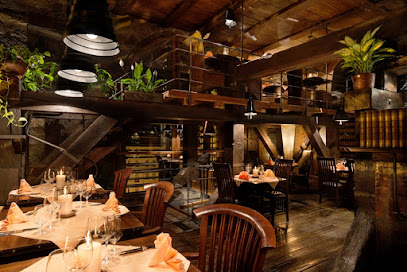
Restaurant Nebozízek and Hotel
Discover Restaurant Nebozízek: A charming dining experience with Western cuisine nestled in the scenic Petřín Gardens of Prague.
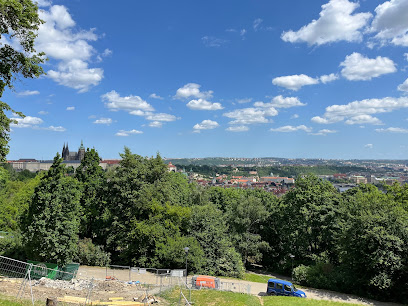
Markets, malls and hidden boutiques
Hamleys
Discover the enchanting world of Hamleys, where every toy brings joy and imagination to life in the heart of New Town.
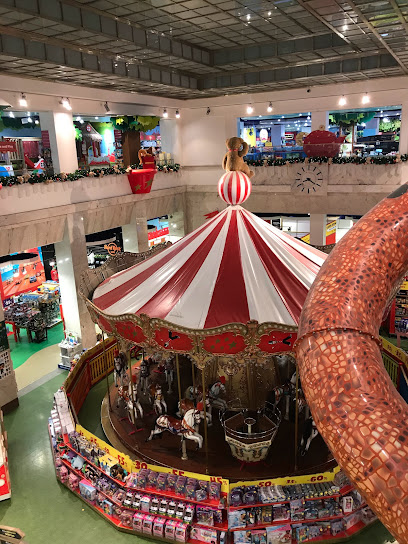
Excalibur City
Discover Excalibur City, where shopping meets adventure in a vibrant mall and amusement park experience perfect for every family traveler.
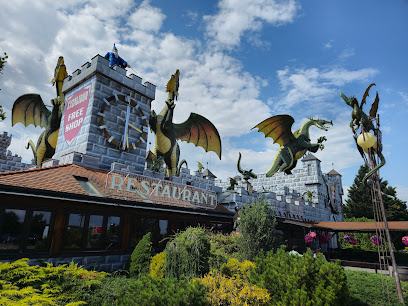
Davidův mlýn - Trochu jiná dovolená
Experience a unique blend of relaxation and adventure at Davidův mlýn, your perfect retreat in the Czech countryside.
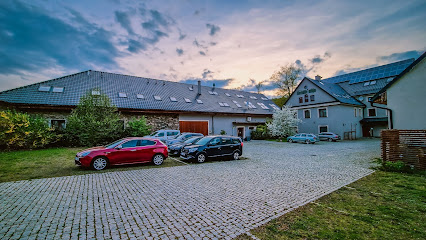
KOSCOM WATCHES Ltd.
Explore KOSCOM WATCHES Ltd. in Prague for luxurious timepieces and expert clock repairs, blending elegance with exceptional service.

Hostýn
Discover the breathtaking views and spiritual charm of Hostýn Mountain Peak, a must-visit destination in the Czech Republic for nature lovers and adventurers.
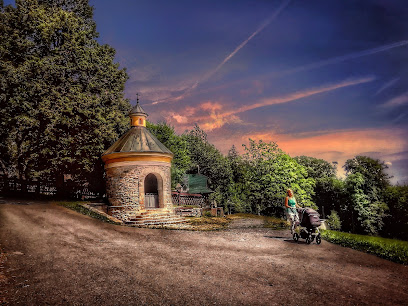
Anděl penzion a café
Experience the local charm at Anděl Penzion a Café, where comfort meets authentic Czech hospitality in picturesque Rožnov pod Radhoštěm.
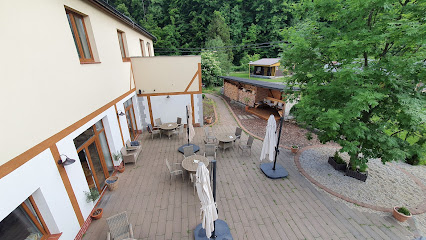
Pustevny Ltd.
Explore the beauty of Pustevny Ltd., a premier ski resort offering year-round outdoor adventures in the stunning Beskydy Mountains.
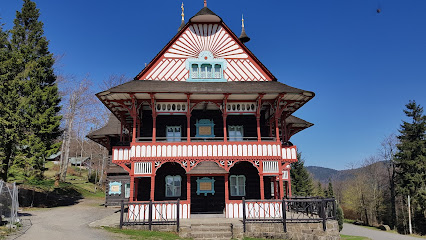
Hotel Magistr Vsetín
Discover comfort and charm at Hotel Magistr Vsetín, your home away from home in the enchanting Czech town of Vsetín.

Cukrárna U Hezounů
Discover the sweet side of Štramberk at Cukrárna U Hezounů, a delightful dessert shop offering exquisite pastries and a cozy atmosphere.
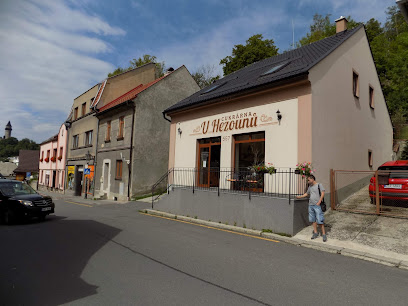
Bric a Brac Antiques
Explore Bric a Brac Antiques in Prague's Old Town for unique collectibles and treasures that tell stories of the past.
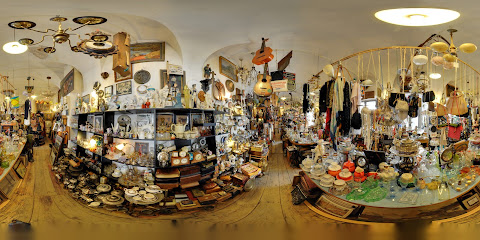
Beskids
Discover the breathtaking beauty and rich culture of the Beskids Mountain Range in Poland, a paradise for nature lovers and adventure seekers.
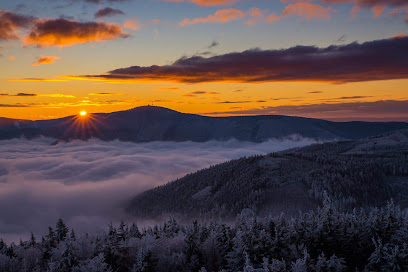
Rocking Horse Toy Shop
Explore the charming Rocking Horse Toy Shop in Prague, a nostalgic haven of delightful toys for children and adults alike, igniting joy and creativity.
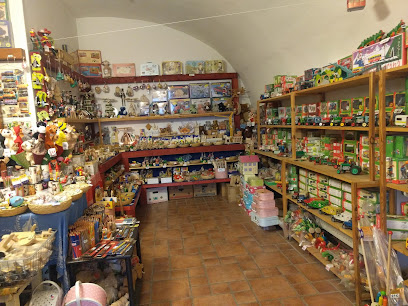
JUMP SPORT PLUS - Jízdní kola a outdoor
JUMP SPORT PLUS: Your ultimate destination for bicycles, camping gear, and outdoor adventures in Frýdek-Místek.
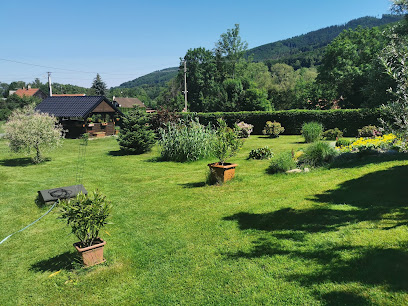
Moser Crystal
Explore Moser Crystal in Prague, where exquisite handcrafted glass art reflects centuries of Czech craftsmanship and tradition.
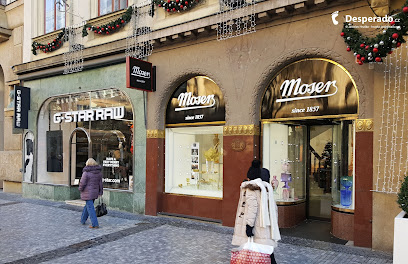
SHOP Marionety Truhlář
Discover the captivating world of Czech puppetry at SHOP Marionety Truhlář in Malá Strana, a must-visit destination for unique souvenirs and cultural treasures.
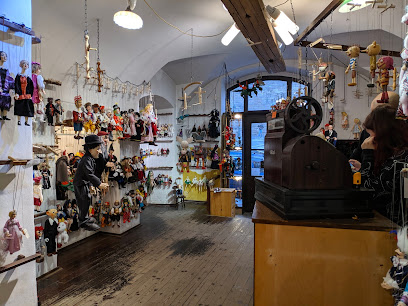
Essential bars & hidden hideouts
Vzorkovna Dog Bar
Discover Vzorkovna Dog Bar, a delightful spot in Old Town Prague where you can enjoy drinks in the company of adorable dogs and fellow dog lovers.
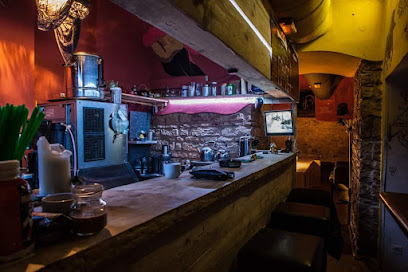
Hemingway Bar
Experience the charm of Old Town at the Hemingway Bar, where cocktails meet literary inspiration in a cozy, inviting atmosphere.
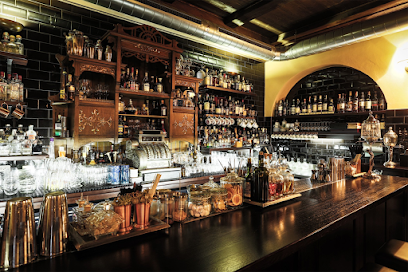
Anonymous Bar
Experience the allure of innovative cocktails at Anonymous Bar, a hidden gem in Prague's Old Town, where every drink tells a story.
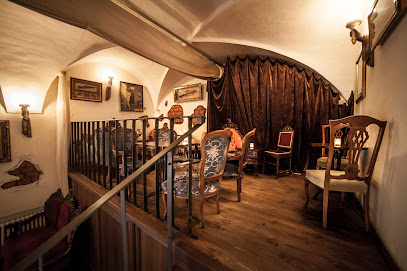
U Sudu Wine Bar
Experience U Sudu Wine Bar in New Town, Prague—a cozy haven for wine lovers with an extensive selection and delightful ambiance perfect for all occasions.
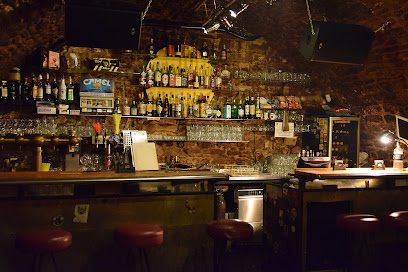
Nebe Cocktail & Music Bar Celnice
Experience the vibrant nightlife at Nebe Cocktail & Music Bar in New Town, where cocktails and music create unforgettable memories.
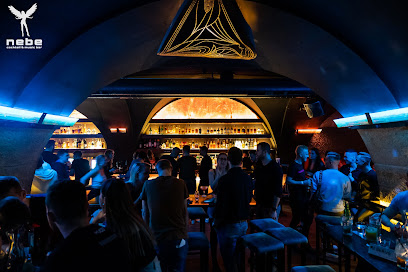
Penzion a restaurace Staré časy
Experience authentic Czech cuisine and cozy accommodations at Penzion a Restaurace Staré časy in scenic Horní Bečva.
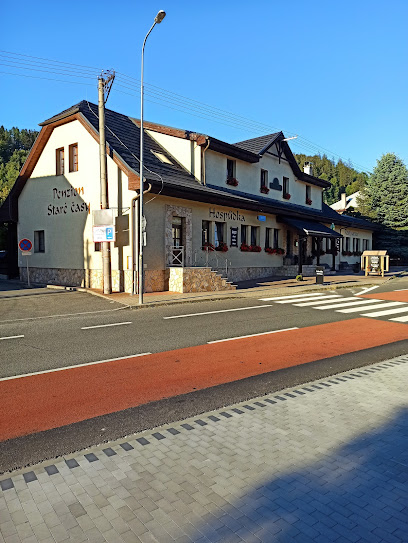
NIGHTMARE Prague Horror Bar
Experience the chilling charm of NIGHTMARE Prague Horror Bar, where cocktails and horror merge for an unforgettable night out.
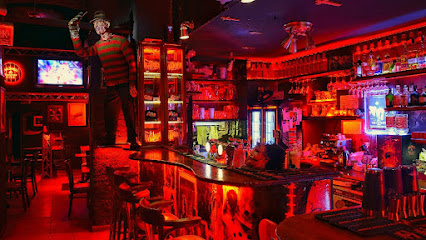
The Alchemist Bar
Discover the magic of cocktails at The Alchemist Bar, a chic hotspot in Prague's Old Town with innovative drinks and a vibrant atmosphere.
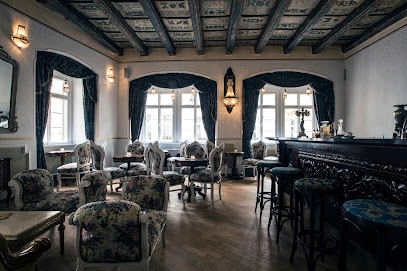
Kohutka
Discover the flavors of Czech cuisine at Kohutka, where every meal is paired with stunning views of the Beskydy Mountains.
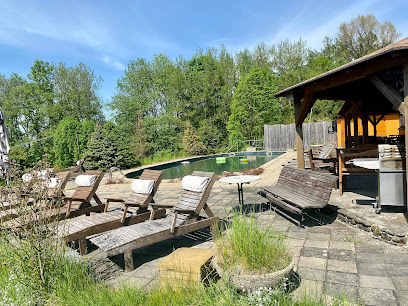
Aloha Bar & Club Prague
Experience the vibrant nightlife of Prague at Aloha Bar & Club, where tropical vibes meet unforgettable music and delicious cuisine.
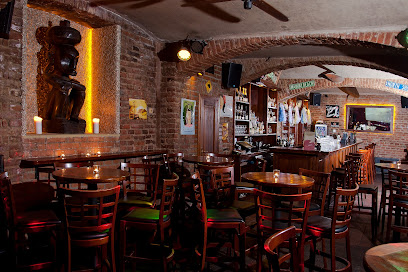
DÉJÁVU Music Club Prague
DÉJÁVU Music Club: A lively cocktail bar in the heart of Prague's Old Town, blending great drinks, music, and vibrant nightlife.
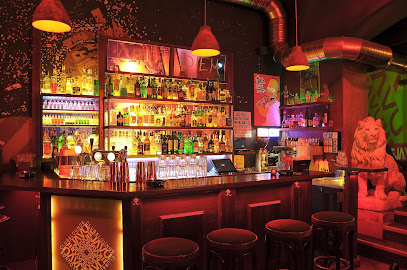
Green Devil's Absinth Bar & Shop
Discover the allure of absinthe at Green Devil's Absinth Bar & Shop, a unique gem in the heart of Old Town, Prague.
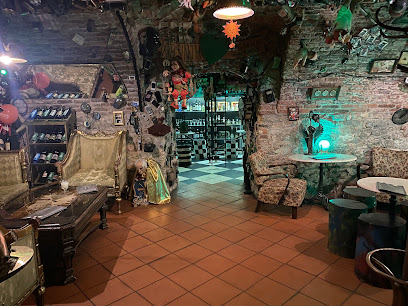
Café Bar Pilotů
Experience the vibrant nightlife of Prague at Café Bar Pilotů, a cocktail haven in Vršovice, known for its creative mixology and welcoming vibe.
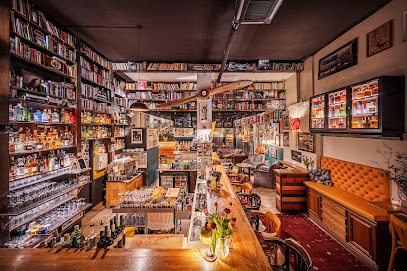
Orange Bar Prague
Experience the vibrant nightlife of Prague at Orange Bar, where innovative cocktails and a chic ambiance await in the heart of Old Town.
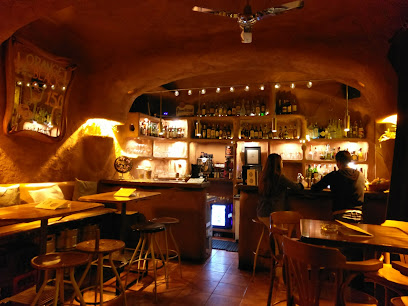
Local Phrases about Beskydy Mountains
-
- HelloAhoj
[ahoy] - GoodbyeNa shledanou
[na skhledanou] - YesAno
[ah-no] - NoNe
[neh] - Please/You're welcomeProsím
[pro-seem] - Thank youDěkuji
[dyeh-koo-yee] - Excuse me/SorryPromiňte
[proh-meen-tyeh] - How are you?Jak se máš?
[yak se mash] - Fine. And you?Dobře. A ty?
[dob-zhe. ah tee] - Do you speak English?Mluvíte anglicky?
[mloo-vee-te ahng-lee-tskee] - I don't understandNerozumím
[neh-roh-zoo-meem]
- HelloAhoj
-
- I'd like to see the menu, pleaseRád bych viděl menu, prosím
[raad bikh vee-dyel meh-noo, pro-seem] - I don't eat meatJá nejím maso
[ya neh-yeem mah-so] - Cheers!Na zdraví!
[na zdra-vee] - I would like to pay, pleaseChtěl bych zaplatit, prosím
[khtyel bikh zah-pla-teet, pro-seem]
- I'd like to see the menu, pleaseRád bych viděl menu, prosím
-
- Help!Pomoc!
[po-mots] - Go away!Jdi pryč!
[ydee preench] - Call the Police!Zavolejte policii!
[za-vo-leh-ye-teh po-lit-see] - Call a doctor!Zavolejte doktora!
[za-vo-leh-ye-teh dok-to-rah] - I'm lostJsem ztracený
[ysem ztra-tseh-nee] - I'm illJsem nemocný
[ysem ne-mot-snee]
- Help!Pomoc!
-
- I'd like to buy...Chtěl bych koupit...
[khtyel bikh ko-oo-peet] - I'm just lookingJen se dívám
[yen se dyee-vam] - How much is it?Kolik to stojí?
[ko-lik toh stoy-ee] - That's too expensiveTo je moc drahé
[toh ye motz dra-he] - Can you lower the price?Můžete snížit cenu?
[moo-zhe-teh snee-zheet tseh-noo]
- I'd like to buy...Chtěl bych koupit...
-
- What time is it?Kolik je hodin?
[ko-lik yeh ho-deen] - It's one o'clockJe jedna hodina
[yeh yed-na ho-dee-na] - Half past (10)Půl jedenácté
[pul ye-dyeh-nahk-teh] - MorningRáno
[rah-noh] - AfternoonOdpoledne
[od-po-led-neh] - EveningVečer
[veh-cher] - YesterdayVčera
[v-cheh-rah] - TodayDnes
[dnes] - TomorrowZítra
[zee-trah] - 1Jedna
[yed-na] - 2Dva
[dvah] - 3Tři
[tree] - 4Čtyři
[chtur-zhee] - 5Pět
[pyet] - 6Šest
[shest] - 7Sedm
[sedm] - 8Osam
[osam] - 9Devět
[deh-vyet] - 10Deset
[deh-set]
- What time is it?Kolik je hodin?
-
- Where's a/the...?Kde je...
[kdeh yeh] - What's the address?Jaká je adresa?
[yah-kah yeh ah-dreh-sah] - Can you show me (on the map)?Můžete mi to ukázat (na mapě)?
[moo-zhe-teh mee toh oo-kah-zat (nah mah-peh)] - When's the next (bus)?Kdy jede další (autobus)?
[kdee yeh-deh dal-shee (ow-toh-boos)] - A ticket (to ....)Jednu jízdenku (do...)
[yed-noo yeez-dehn-koo (doh)]
- Where's a/the...?Kde je...
History of Beskydy Mountains
-
The Beskydy Mountains have a rich medieval history, with early records dating back to the 13th century. During this period, the region was part of the Kingdom of Bohemia. Various noble families established settlements and fortifications in the area, contributing to the cultural and economic development of the region.
-
In the 16th and 17th centuries, the Beskydy Mountains saw an influx of Wallachian settlers from the Carpathian region. These settlers brought with them unique traditions, agricultural practices, and livestock breeding techniques, which have had a lasting impact on the cultural landscape of the Beskydy Mountains.
-
Hukvaldy Castle, one of the largest castles in Moravia, is a significant historical landmark in the Beskydy Mountains. Built in the 13th century, the castle has witnessed numerous historical events, including sieges and battles. Today, it stands as a testament to the region's medieval heritage and offers panoramic views of the surrounding landscape.
-
The 19th century brought significant changes to the Beskydy Mountains with the advent of the Industrial Revolution. Logging became a major industry in the region, leading to the establishment of numerous sawmills and the construction of logging railways. This period also saw the growth of small industrial towns and the development of local infrastructure.
-
During World War II, the Beskydy Mountains were a strategic location for resistance movements against the Nazi occupation. The dense forests provided cover for partisan groups who carried out guerrilla warfare. The region's challenging terrain and the local population's support were crucial in the resistance efforts.
-
After World War II, the Beskydy Mountains experienced a period of reconstruction and development. The region's natural beauty and cultural heritage attracted tourists, leading to the growth of the tourism industry. Today, the Beskydy Mountains are a popular destination for outdoor activities such as hiking, skiing, and cycling, while preserving their rich historical and cultural legacy.
-
The Beskydy Mountains are renowned for their rich folk culture, which includes traditional music, dance, crafts, and festivals. The region's inhabitants, known as the Wallachians, have preserved their unique cultural identity through centuries. Visitors can experience this vibrant culture at various local events and in the open-air museums scattered throughout the region.
Beskydy Mountains Essentials
-
The Beskydy Mountains are located in the eastern part of Czechia, near the border with Slovakia. The nearest international airport is Leos Janacek Airport in Ostrava, approximately 35 kilometers away. From Ostrava, you can take a train or bus to the town of Frýdek-Místek, which serves as a gateway to the Beskydy Mountains. The journey typically takes around 1 to 1.5 hours by road. Alternatively, you can rent a car for more flexibility in exploring the region.
-
Public transportation in the Beskydy Mountains is well-developed with buses and trains connecting major towns and tourist spots. Local buses are frequent and can take you to most villages and trailheads. For more remote areas, renting a car is recommended. Taxis are available but may be costly for longer distances. Additionally, there are numerous well-marked hiking and cycling trails if you prefer to explore the region on foot or by bike.
-
The official currency in Czechia is the Czech Koruna (CZK). Credit cards are widely accepted in hotels, restaurants, and shops in larger towns, but it's advisable to carry some cash, especially if you plan to visit smaller villages or rural areas. ATMs are available in most towns, but it's wise to withdraw sufficient cash beforehand, especially if you plan on exploring more remote parts of the Beskydy Mountains.
-
The Beskydy Mountains are generally a safe destination for tourists. Standard travel precautions apply: avoid walking alone at night in unfamiliar areas, and keep an eye on your belongings in crowded places. There are no specific high-crime areas targeting tourists, but it's always best to stay vigilant and aware of your surroundings.
-
In case of emergency, dial 112 for immediate assistance. There are local police stations and medical facilities available in major towns like Frýdek-Místek. It is recommended to have travel insurance that covers medical emergencies. For minor health issues, there are pharmacies in most towns where you can purchase over-the-counter medications.
-
Fashion: Do dress in layers and wear sturdy footwear, especially if you plan to hike. Avoid wearing overly revealing clothing. Religion: Do respect local customs and traditions, especially if visiting religious sites. Always dress modestly. Public Transport: Do be respectful and give up your seat to elderly passengers. Don't eat or drink on public transport. Greetings: Do greet people with a handshake and a smile. Using basic Czech greetings like 'Dobrý den' (Good day) can be appreciated. Eating & Drinking: Do try local delicacies and accept food offerings graciously. Don't refuse hospitality, as it is considered impolite.
-
To experience the Beskydy Mountains like a local, visit the local markets where you can buy fresh produce and traditional Czech goods. Engage with locals, as they are often friendly and willing to share stories about the region's history and culture. Don't miss visiting traditional wooden churches and trying local dishes like 'halušky' (a type of dumpling) and 'frgál' (a regional pastry). For a unique experience, take a ride on the Pustevny cable car, offering panoramic views of the mountains.
Trending Landmarks in Beskydy Mountains
-
Prague Castle
-
Bohemian Switzerland National Park
-
Adršpach-Teplice Rocks
-
Pravčická Archway
-
Šumava National Park
-
Wallachian Open Air Museum
-
Zdarski Mountains
-
Statue of Radegast
-
Štramberská Trúba
-
Tiské stěny
-
Viewpoint Máj
-
Dolský mlýn
-
Javorový vrch
-
Belvedere Viewpoint
-
National Memorial to the Heroes of the Heydrich Terror
Nearby Cities to Beskydy Mountains
-
Things To Do in Ostrava
-
Things To Do in Martin
-
Things To Do in Trenčín
-
Things To Do in Bielsko-Biala
-
Things To Do in Olomouc
-
Things To Do in Banská Bystrica
-
Things To Do in Gliwice
-
Things To Do in Zakopane
-
Things To Do in Trnava
-
Things To Do in Brno
-
Things To Do in Krakow
-
Things To Do in Poprad
-
Things To Do in Opole
-
Things To Do in Bratislava
-
Things To Do in Czestochowa












